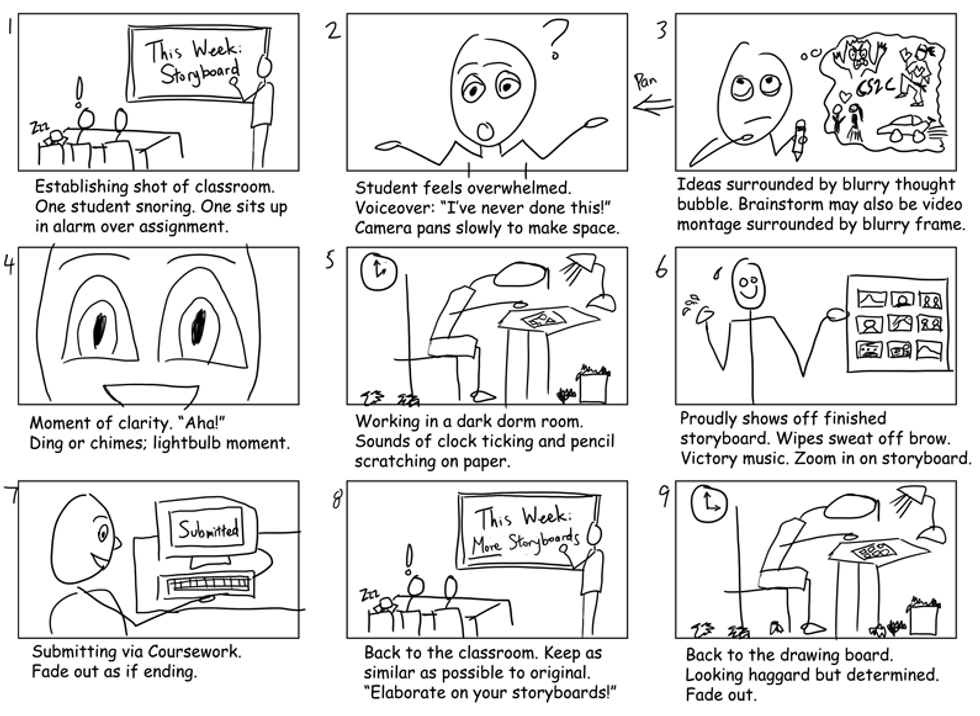Be it for an essay, a speech, a story, or even an exceedingly long and complicated text, chances are that everyone has some experience with writer’s block. The annoying blankness where ideas should be, the inability to form satisfactory sentences, it's likely not terribly different from one person to the next. So it is worth mentioning at least some of the ways I, as well as others I have asked about it, have found to counter writer's block and all that comes with it.
1. Write down anything, even something bad
For many, the main problem with writer's block isn't necessary that they don't have any ideas, it's just that the ideas they have aren't good enough. Maybe its that they need a good grade on an opinion-based paper, maybe they need to make a good point in a debate, it doesn't really matter. So it stands to reason that putting down something just as a place-holder is enough to break the block and move on to the rest of the work.
2. Walk away and come back later
This implies that there is less of a time limit, but it is still effective. If you honestly can't think of anything, at a certain point you just have to clear your mind and come back. Things like sleeping and solitary walks are great for allowing one to return to their work with fresh eyes and a fresh mind.
3. Take a shower
Not to be confused with the previous point, the idea here is that a shower provides natural white noise as well as (ideally) closing one off from the outside world and leaving them alone with their thoughts.
4. Study the material
Specifically for research papers and essays, and really any writing for some academic propose, the idea here is that if what you are writing doesn't have to come completely out of your own head, you might as well do all that you can with the material that you don't have to think about.
5. Storyboard
Just as the previous point was directed at purely academic papers, this is one directed at creative writing specifically. No matter the length or complexity of the story, there will always be a need to take a good look at the plot and make sure it is as tight and coherent as possible. If you are having trouble figuring out what should happen next in a story, it may be that a timeline with bullet points of events is a better use of time than brooding over one's keyboard or notebook.
6. Talk to someone about the material
For some, regardless of what they are writing, talking through it with someone helps them think about what they have to write. Verbalizing the kinds of things you need to be writing means that you are hearing them in addition to thinking about them, I'm sure there is a detailed psychological explanation for how that helps but all that's important is that it works.
7. Talk in character voices
This sounds like it would only apply to creative writing and maybe writing dialogue for theater, but it may happen that one may be asked to write a dialogue for a class in which the same advice applies. Get into the head of a person whom you have to write dialogue for, regardless of the medium, and it becomes easier. The drawback is if anyone walks in on you using this method you are left seeming insane.
8. Drink coffee
Assuming one does not drink so much of the ambrosia of the gods that their hands shake, the stimulant supplied by the beverage can often be enough to allow many people to think more clearly and subsequently break writer's block.
9. Edit what you already have
Often this is most useful for longer writing projects, but any time one gets stuck in the middle of any body of writing it is worth a try. It is rare that one is totally satisfied with their writing after the first pass, especially if they used the first method on this list a few times already, so going back and improving existing writing can be a great way to think about what comes next and in doing so break the writer's block.
These are only a few of the ways one can break writer's block. If none of them work... I hear the Overlook Hotel is beautiful this time of year.























